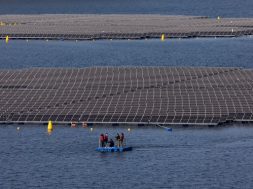
A crowd-powered solar future for Africa
The Sun Exchange founder and CEO, Abe Cambridge, early on became painfully aware that climate change presents an alarmingly imminent threat to humanity. Cambridge also realised that the solution is to transition the world away from fossil fuels and towards solar power, the most deployable, affordable and accessible type of renewable energy. Working as a solar engineer in 2014 in South Africa, he was immediately struck by the absence of solar panels on rooftops, despite Southern Africa being one of the sunniest regions on Earth. This lack of solar technology spurred Cambridge to innovate a fintech platform that was inclusive and accessible.
In June 2020, the company announced the close of its $4 million Series A funding round, led by a $3 million investment from ARCH Emerging Markets Partners’ Africa Renewable Power Fund (ARFP), a notable accomplishment, especially considering the global economic downturn due to the COVID-19 crisis. The funding will enable the company to expand to new markets across Africa and significantly accelerate its mission of connecting the world to the sun. Having completed its 10th installation in May 2019, there are now 19,000+ registered members globally across 160+ countries with 34 solar projects installed across South Africa and around 3.6MW of solar cells sold. To date, Sun Exchange has unlocked approximately $2.5 million of solar project installation and maintenance opportunities for reputable solar installation companies across South Africa.
This innovative model means that a business can install solar onto its roof, which includes the full technical installation and battery system, without having to pay the large upfront costs. This affords small and medium businesses and organisations that don’t have access to traditional solar finance the ability to go solar. This has enabled many schools, retirement centres, non-profits and other organisations to reduce their energy costs. Additionally, when community organisations, such as schools, go solar through Sun Exchange, they become models of sustainability and climate leadership for students, families and others in the community.

















